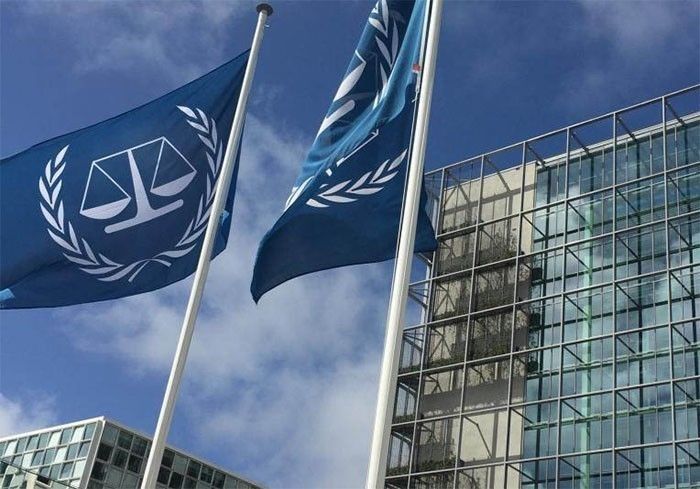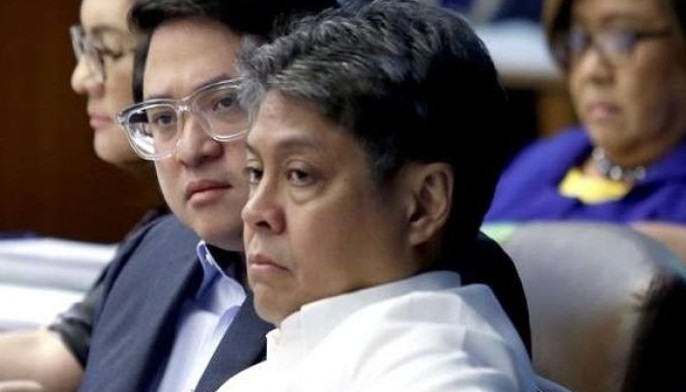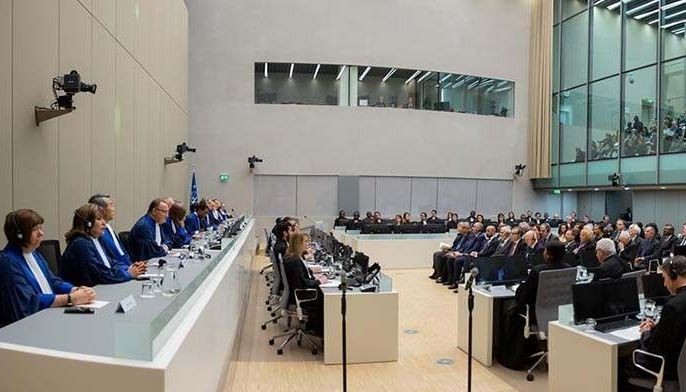2 years after Philippines' ICC exit, SC junks pleas vs withdrawal for being moot

MANILA, Philippines — The Supreme Court junked the petitions challenging the Philippine government’s withdrawal of its ratification of the Rome Statute that established the International Criminal Court, two years after the declaration took effect.
The SC Public Information Office on Tuesday said the court rendered a unanimous decision, penned by Associate Justice Marvic Leonen, dismissing the petition for being moot and academic.
Minority senators filed the petition in May 2018, while the Philippine Coalition for the ICC filed a second legal challenge in June 2018. They sought to have the withdrawal declared as invalid or ineffective for lack of concurrence from at least two-thirds of the members of the Senate.
The Palace claimed the treaty was never valid because it was not published in the Official Gazette, which is not a requirement in the treaty-making process.
The SC held oral arguments on the petitions on Aug. 28 and Sep. 4, 2018, and deemed the case submitted for resolution after the petitioners and the Office of the Solicitor General submitted their respective memoranda.
The withdrawal from the ICC took effect on March 17, 2019, making the Philippines the second country to leave the Hague-based tribunal to prosecute the world’s worst atrocities.
President’s powers
The petitioners argued that the country’s unilateral withdrawal from the Rome Statute is invalid due to lack of Senate concurrence, noting that treaties exhibit a shared responsibility between the executive and the legislative branches of the government.
There is no explicit provision in the 1987 Constitution stating whether or not the concurrence of the upper chamber is necessary for the abrogation of a treaty earlier concurred in by the body. But Section 21 of the 1987 Constitution states that no treaty or international agreement shall be valid and effective unless concurred with by at least two-thirds of all the members of the Senate.
In resolving the petitions, the SC PIO said the ruling “acknowledged the President, as primary architect of foreign policy, is subject to the Constitution and existing statute.”
“Therefore, the power of the President to withdraw unilaterally can be limited by the conditions for concurrence by the Senate or when there is an existing law which authorizes he negotiation of a treaty or international agreement or when there is a statute the implements an existing treaty,” it added.
“The decision noted that in this case, there were provisions in a prior law, Republic Act 9851, or the Rome Statue,” it also said.
RA 9851 is the Philippine Act on Crimes Against International Humanitarian Law, Genocide, and Other Crimes Against Humanity.
RELATED: ICC continues initial review of Duterte, drug war despite Philippine withdrawal
Protection of human rights
President Rodrigo Duterte cited “outrageous” attacks on him and his administration and the supposedly illegal attempt by ICC prosecutor Fatou Bensouda to place him under the Hague-based court’s jurisdiction as reasons for the country’s withdrawal.
His announcement came a month after the ICC initiated a preliminary examination into allegations of extrajudicial killings in the Philippines.
During the oral arguments, the petitioners raised that the withdrawal would violate the Filipinos’ right to effective remedies and would abolish the public’s “means of enforcing right to effective remedies against international crimes committed by state forces and/or armed groups.”
The SC PIO said that the tribunal “noted that the judiciary has enough powers to protect human rights contrary to speculations raised by the petitioners.”
A full copy of the resolution will be uploaded on the SC website as soon as it’s available, it added.
VFA withdrawal
In March 2020, senators made another push for a favorable ruling from the tribunal, following Duterte’s announcement of a unilateral abrogation of the Visiting Forces Agreement with the United States.
The Senate asked the SC to rule that “the withdrawal from or termination of a treaty or international agreement that had previously been concurred in by the Senate requires the concurrence of two-thirds of all the members of the Senate for the said withdrawal to be valid and effective.”
The VFA withdrawal has since been put on hold. In November 2020, Foreign Affairs Secretary Teodoro Locsin Jr. said Duterte came with the decision "to enable us to find a more enhanced, mutually beneficial, mutually agreeable, and more effective and lasting arrangement on how to move forward in our mutual defense."
- Latest
- Trending



































